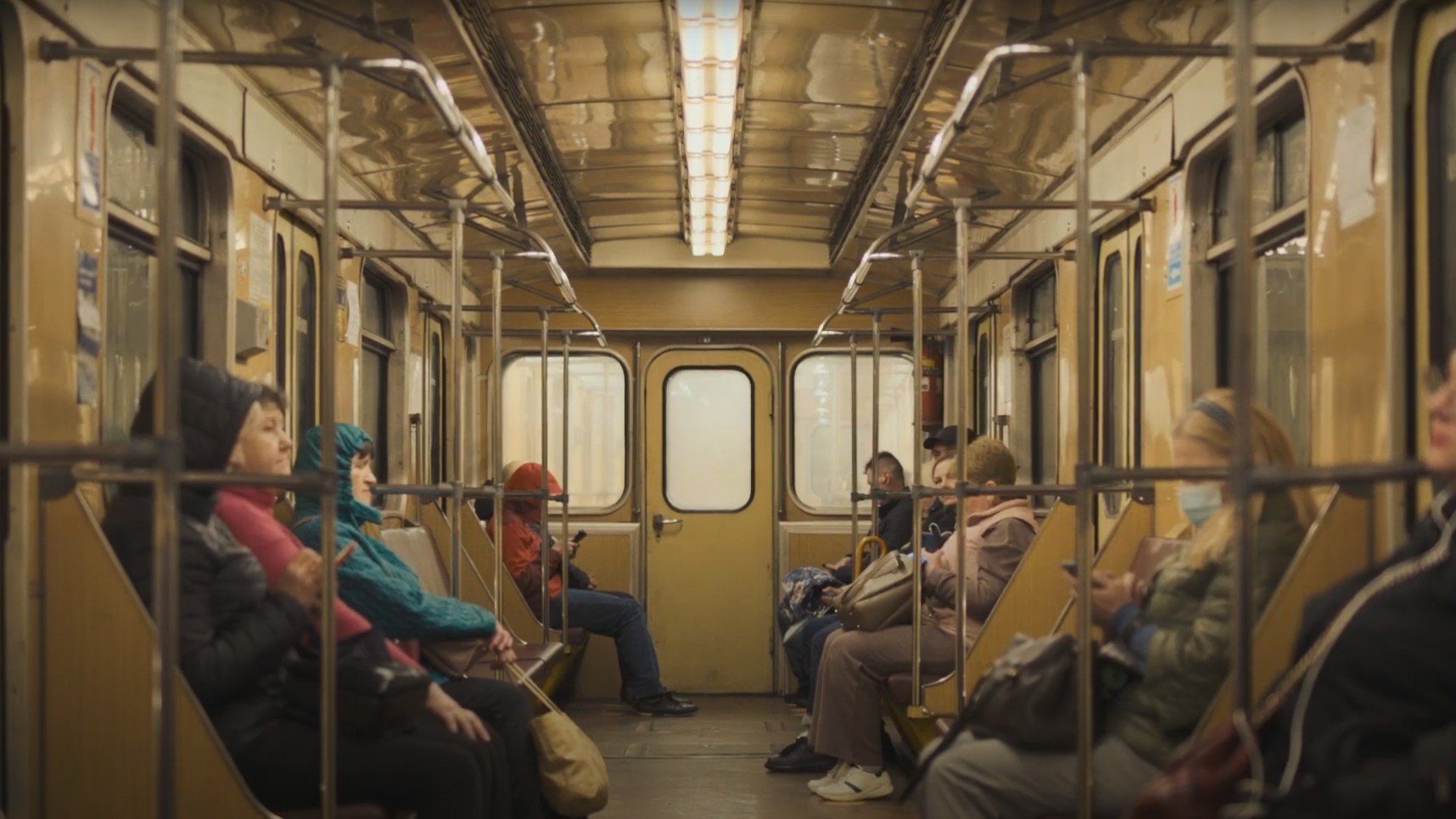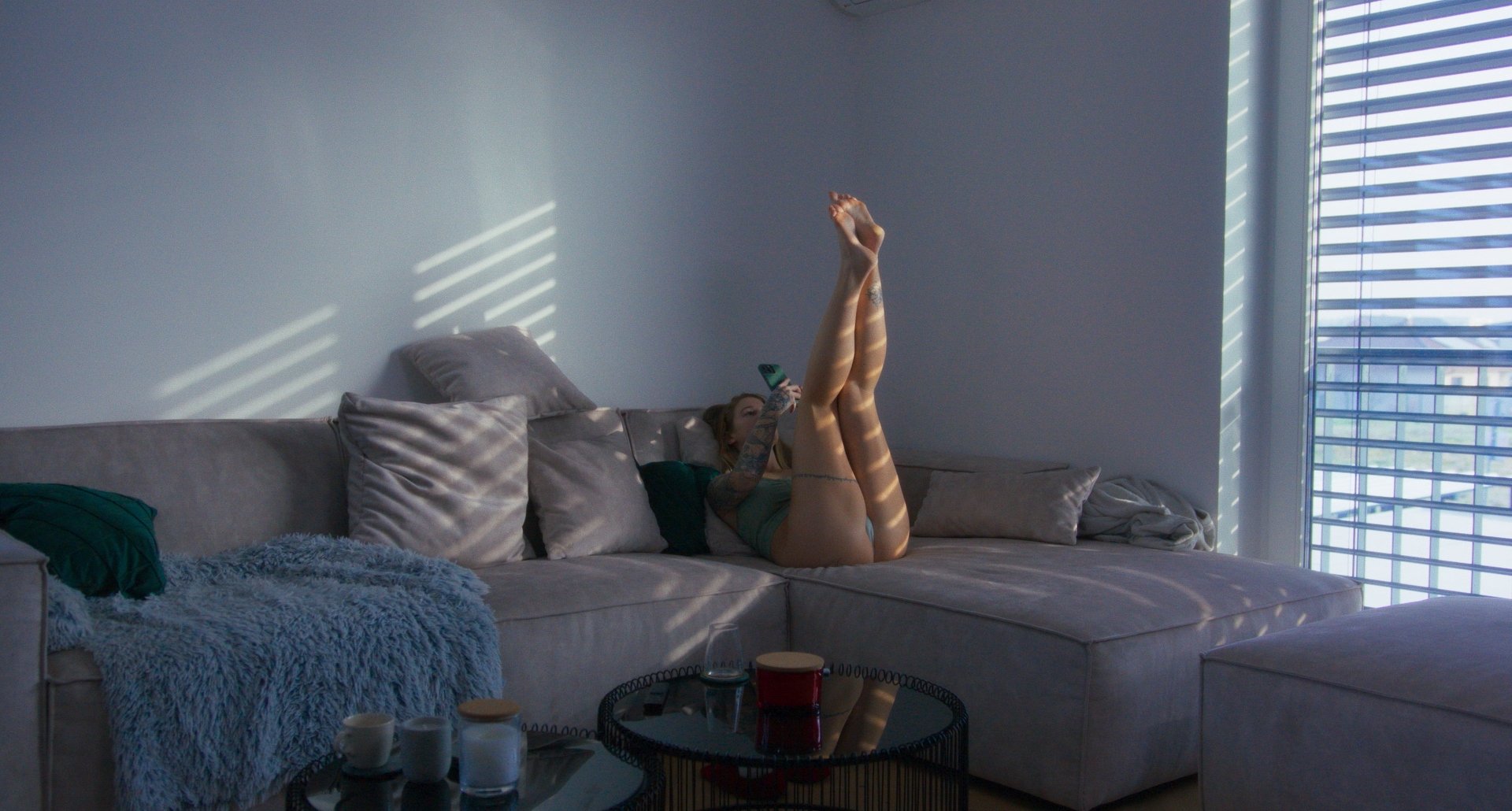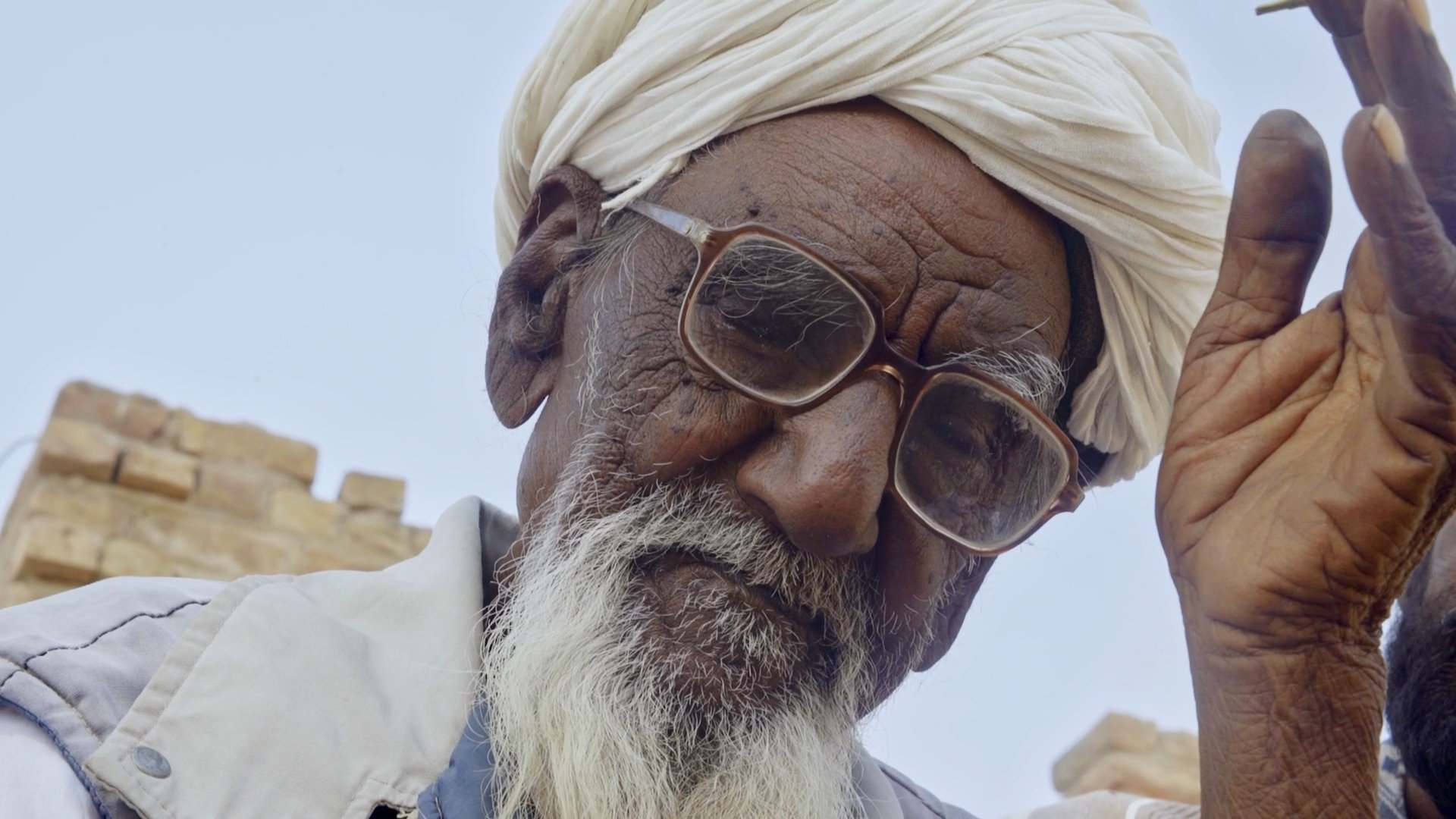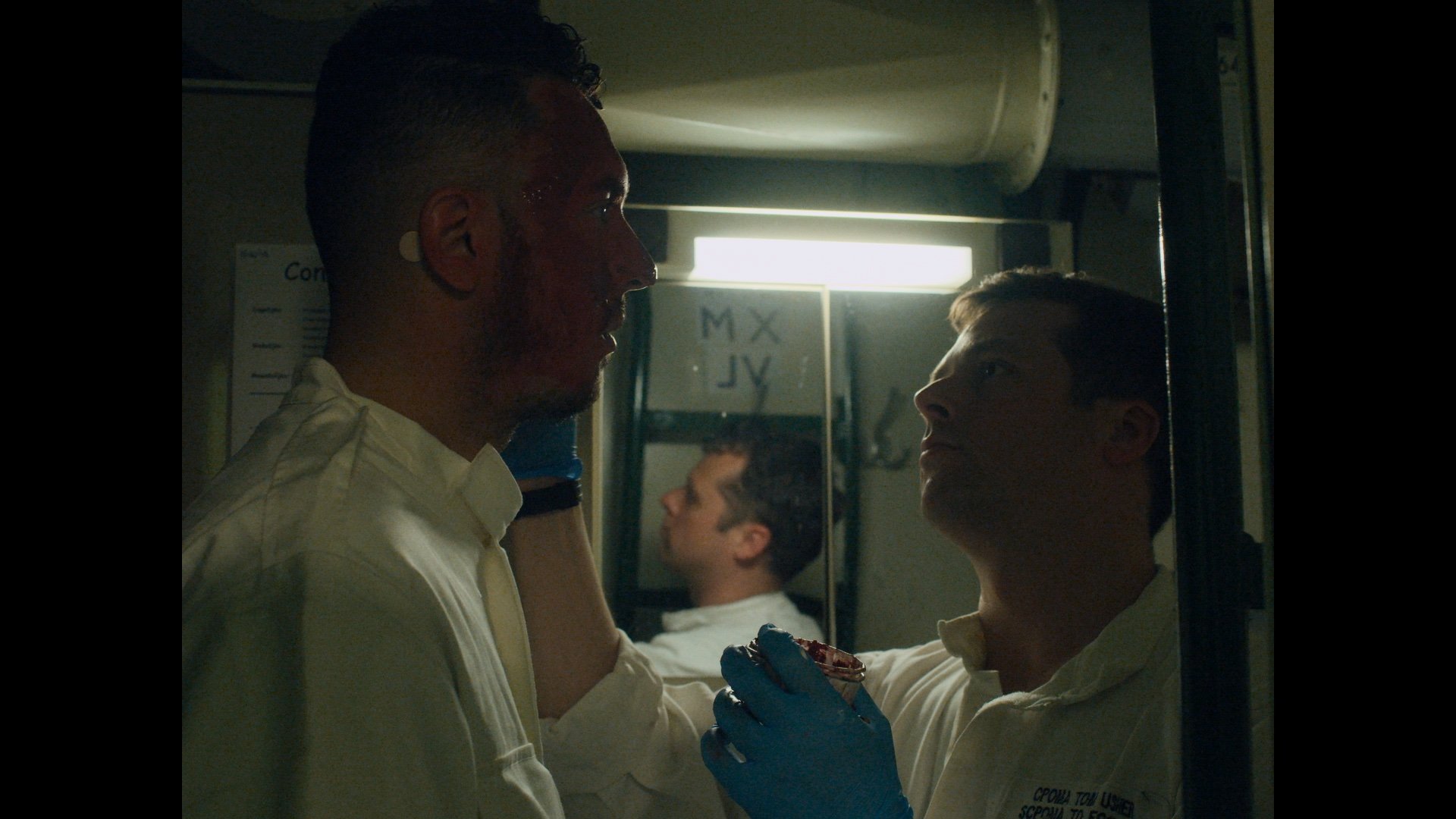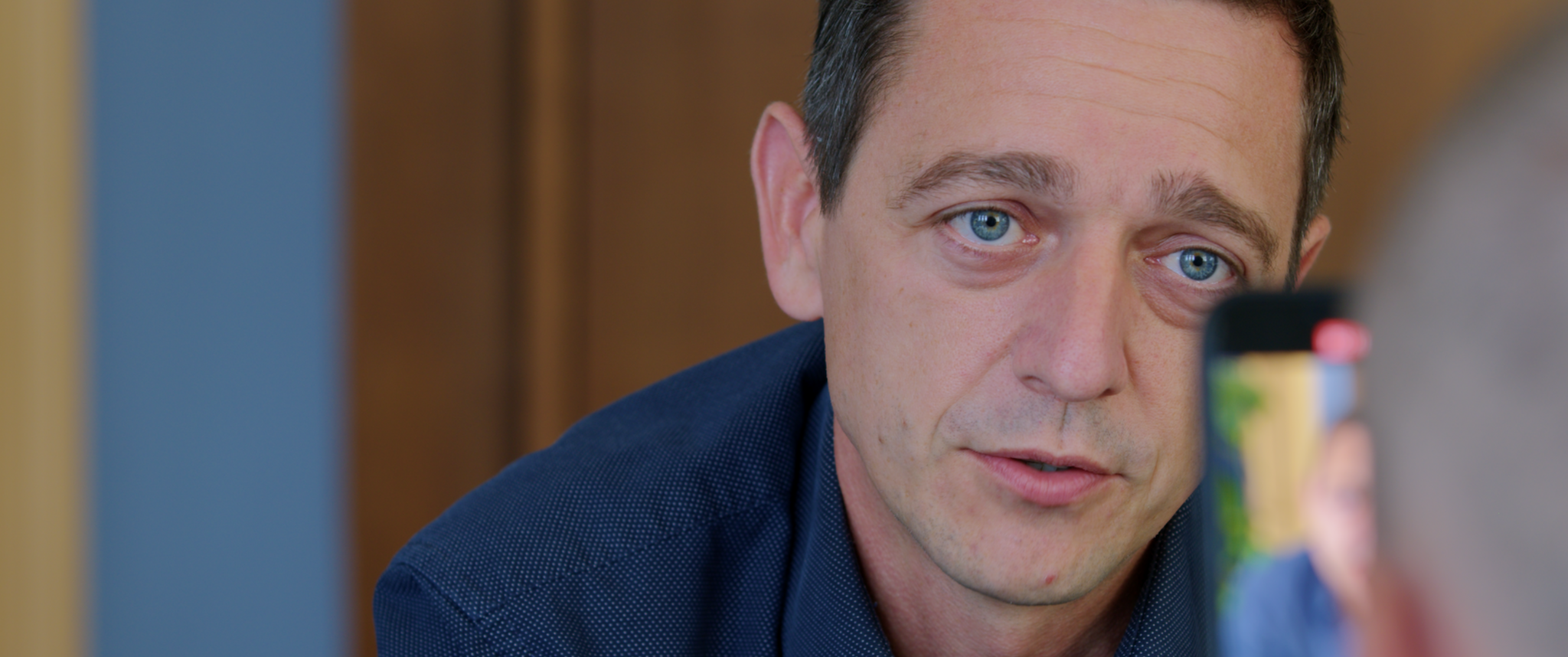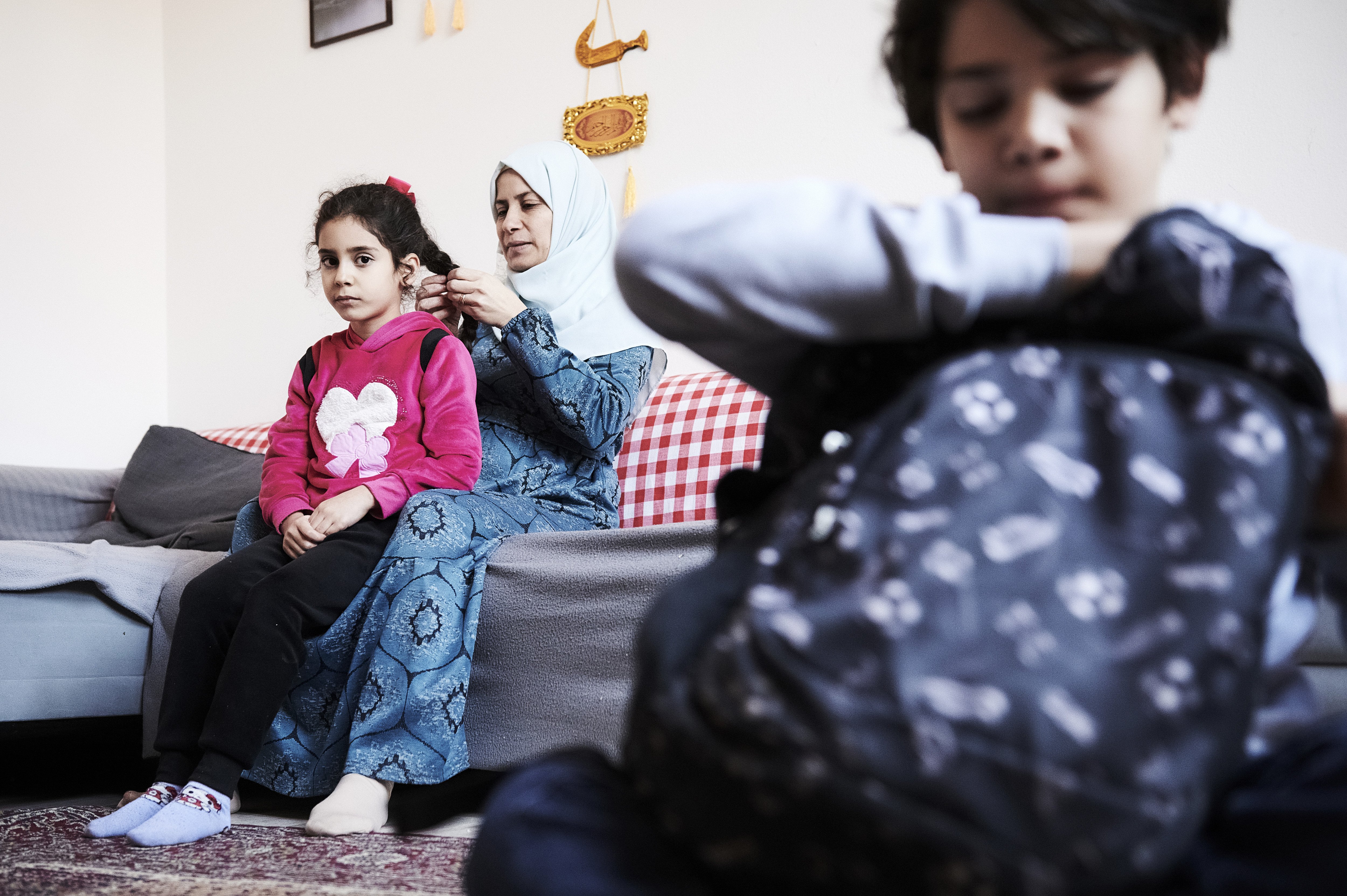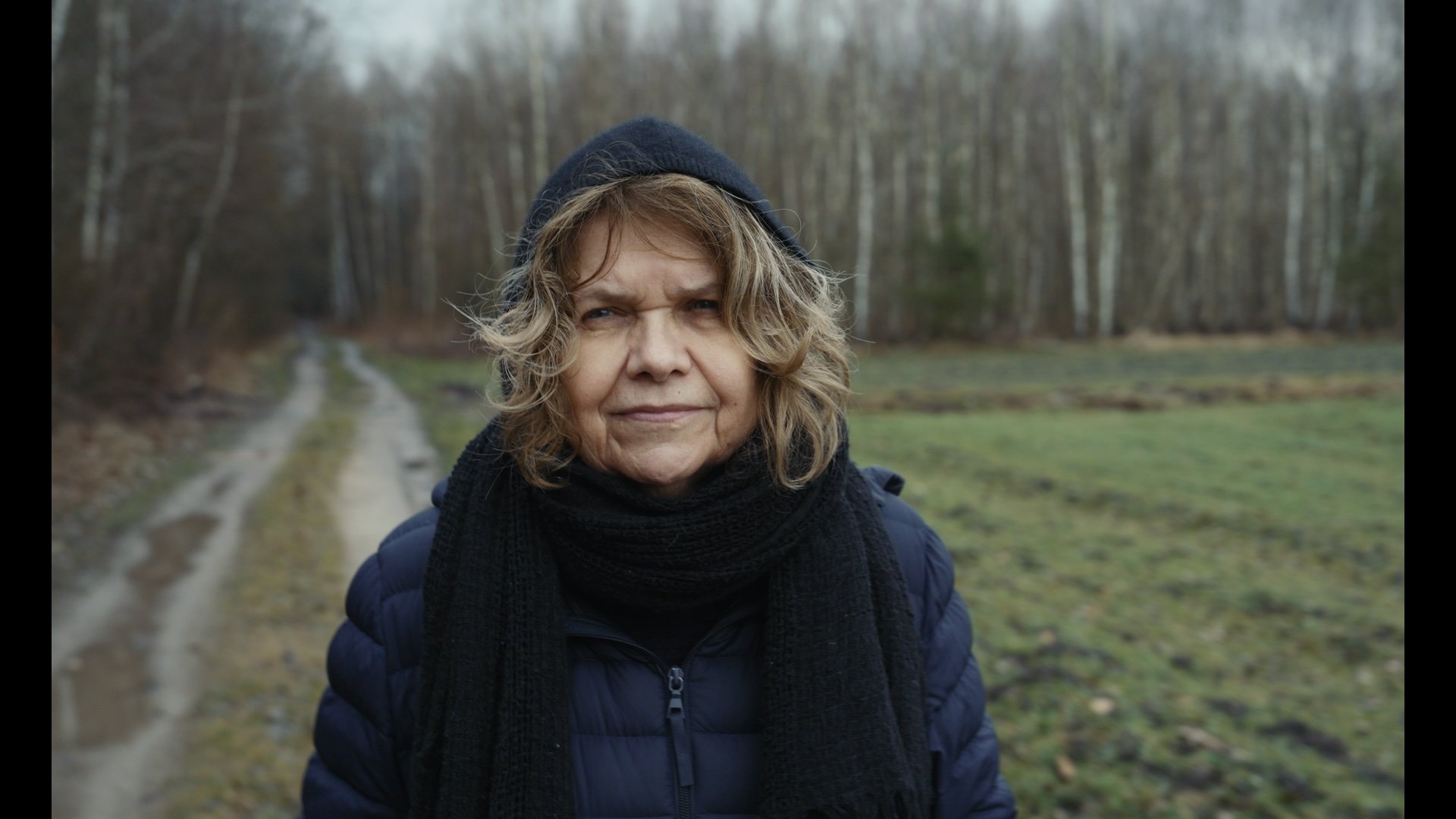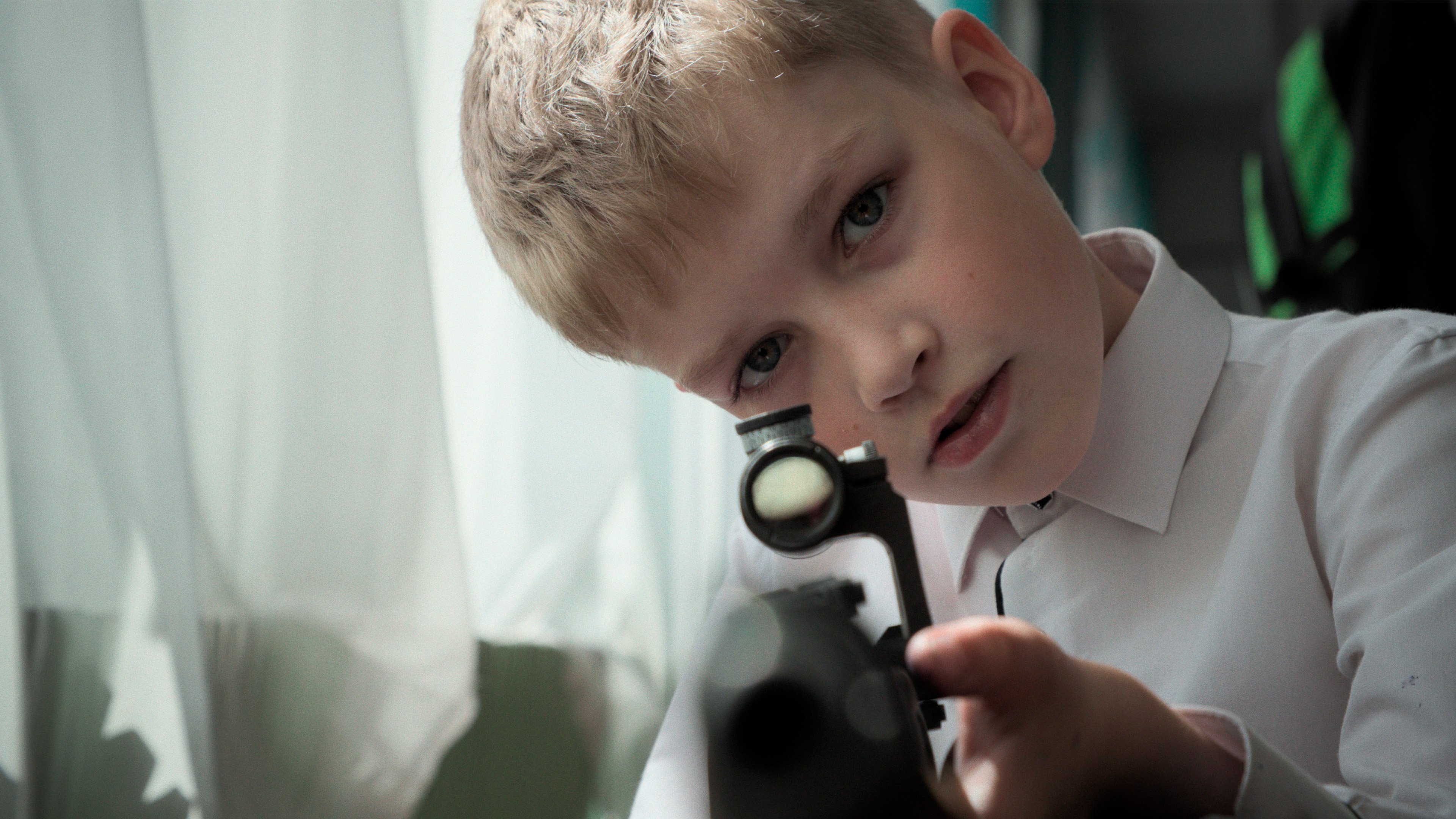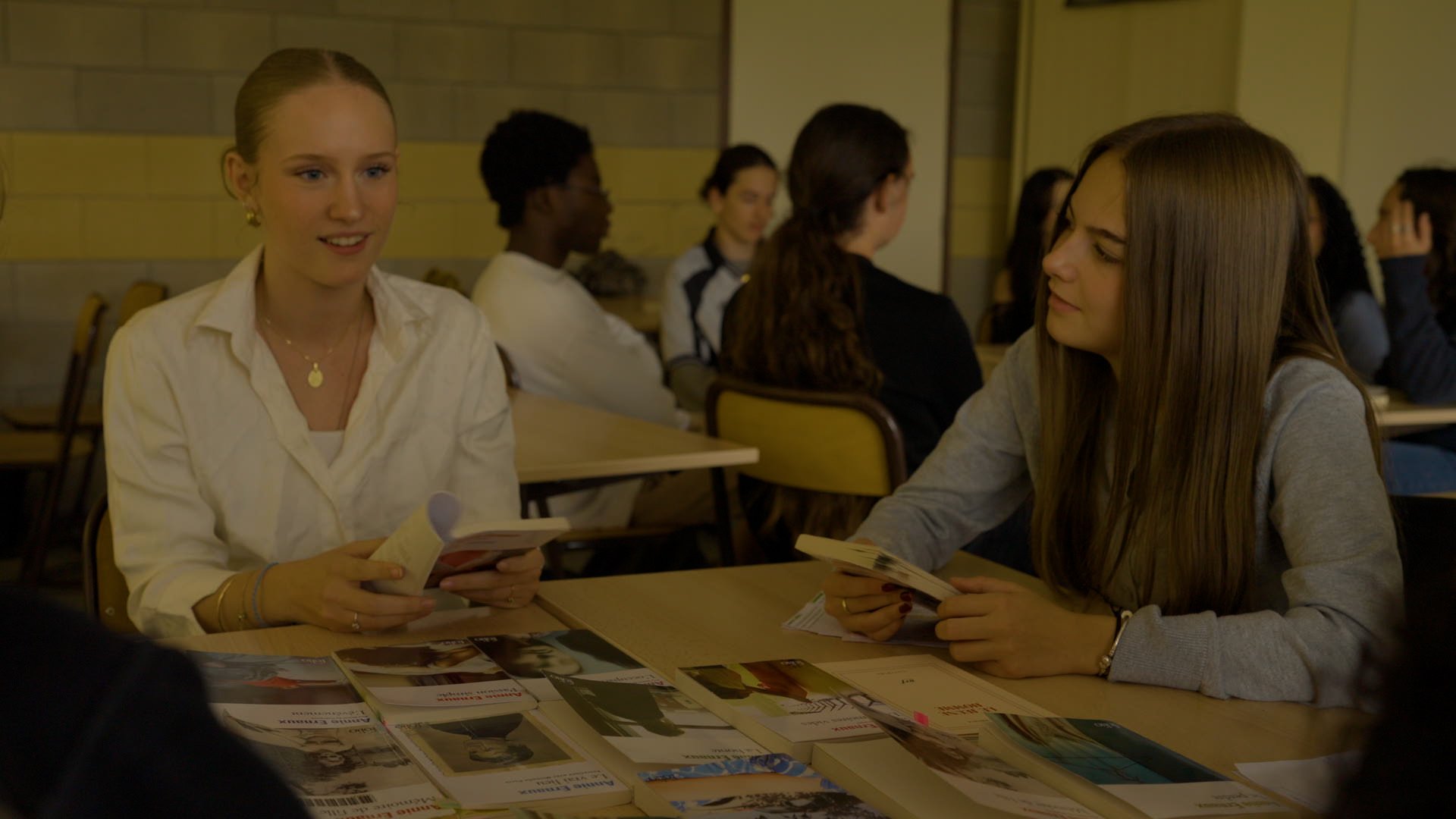This year's Ji.hlava IDFF begins in ten days! The festival will open on October 24 with Barbora Chalupová's documentary Virtual Girlfriends, and the program will offer more than three hundred films. In addition to the latest films from Czechia and around the world, the festival will also offer a unique showcase of films made by film collectives. Audiences can look forward to a film portrait of Volodymyr Zelensky and a surprising reflection on Annie Ernaux through the eyes of French high school students. The Ji.hlava’s discussion platform Inspiration Forum will focus on the themes of love, Europe, money, and radicalization. The 29th Ji.hlava IDFF will take place from October 24 to November 2.
The 29th Ji.hlava International Documentary Film Festival – a key European documentary film festival and the largest event of its kind in Central and Eastern Europe – will offer 305 films in competitive and non-competitive sections, including 76 world premieres, 28 international premieres, and 15 European premieres.
"This year's Ji.hlava is just one year away from its 30th anniversary, and the status of documentary film has evolved enormously during that time. Three decades ago, documentaries were regarded as a marginal form, almost invisible without the backing of public broadcasters. Today, however, no major festival can do without them. And documentaries are not only screened in both competitive and non-competitive sections—they also regularly win main awards. This transformation is reflected in the broad spectrum of films now labeled as documentaries. Filmmakers combine elements of fiction, experimentation, and animation while developing diverse documentary styles—from observational approaches and time-lapse to investigative forms and film essays," says Ji.hlava IDFF director Marek Hovorka.
"It is no coincidence that documentary film is much more open to filmmakers, offering greater freedom for creative expression than the world of fiction film. Documentary cinema has long been the most dynamic and inspiring area of filmmaking, and it’s worth watching how it continues to engage audiences," adds Hovorka.
The author of the official festival trailer for the 29th Ji.hlava IDFF is renowned Ukrainian director Sergei Loznitsa, whose works combine precise observation of reality with a deeply humanistic view of history and the present. The trailer prepared for this year's edition takes place in the subway of the Ukrainian city of Dnipro.
"The footage comes from material shot in the spring of 2023 as part of The Invasion project. I wanted to capture the lives of ordinary Ukrainians across the country—from Kharkiv to Lviv, from Kyiv to Odesa—and observe how war affects every aspect of civilian life and transforms individuals and society as a whole," explains Loznitsa. "As we know, during wartime, subway stations in large Ukrainian cities – in Kyiv, Kharkiv, and Dnipro – serve as air-raid shelters. So, on the one hand, we see a completely normal, everyday scene: people entering the subway during the morning rush hour and hurrying to their duties. On the other hand, we know that this routine morning situation can be interrupted at any moment by an air raid siren," adds the director, whose films regularly compete at the world's most prestigious festivals – from Cannes to Venice to the Berlinale – and who is one of the most respected contemporary European documentary filmmakers.
Ji.hlava traditionally entrusts the creation of its official trailers to exceptional authors of world cinema – Jean-Luc Godard, Kirsten Johnson, Godfrey Reggio and composer Jóhann Jóhannsson, for example, have all contributed to this tradition.
Ji.hlava kicks off on October 24 with the OnlyFans phenomenon
The opening film of this year's festival will be Virtual Girlfriends by Czech director Barbora Chalupová, which explores digital intimacy and the transformation of relationships in the era of artificial intelligence.
"It is a festival tradition that Ji.hlava opens with a Czech or Slovak film. This year, it will be the remarkable film Virtual Girlfriends by talented Czech director Barbora Chalupová, co-author of the film Caught in the Net, and producer Pavla Klimešová. Their film reflects on the current and attractive topic of the OnlyFans internet platform. The film does not dwell on the surface and does not rely on sensationalism, but approaches the more general theme of loneliness in the digital world. The OnlyFans website thus becomes just one of many social networks, and the protagonists of the film are not so different from ordinary users of other social networks as it might seem at first glance," says Marek Hovorka about the opening film.
Through the stories of three women, the film follows the process of content creation, conversations with subscribers, and the everyday dynamics of their romantic and work relationships. Where is the line between work and intimacy, and who is actually the victim in all this? "Virtual Girlfriend is not a sensationalist look at eroticism, but an attempt to understand how intimacy, relationships, and our ideas about closeness are changing in the digital world," says director Barbora Chalupová. "The audience in Jihlava is curious and sensitive. They perceive current phenomena without prejudice and seek out films that open up space for dialogue. I am glad that our film can open this year's edition of this festival, which gives space to ethically sensitive and courageous documentaries," adds the director. The film will be screened in both Opus Bonum and Czech Joy sections.
Opus Bonum: infidelity and a seven-hour film meditation
The Opus Bonum competition section, which offers the most remarkable world documentaries, will feature 15 films this year and focuses on boundaries – personal, spiritual, social, and geographical – and their variability in today's world. The films are united by a deep attention to human experience, an ability to transform personal stories into more general reflections, and a visual sensitivity that reveals how our identity is shaped by the surrounding world – the body, the landscape, faith, and time.
"The main competition section, Opus Bonum, is a selection of authors’ second and subsequent films. In addition to the Czech film Virtual Girlfriends and the Slovak film Open, filmmakers from Mexico, Chile, India, China, Kosovo, Bulgaria, Great Britain, and Switzerland will present their latest works. This year, for the first time, we have included a seven-hour film, an opus by Swiss-Canadian filmmaker Peter Mettler, while the shortest film in the main competition is sixty-five minutes long Floating Population, which will be presented by Chilean director Carlos Araya Díaz," Marek Hovorka explains.
Open by Slovak director Diana Fabiánová explores open marriage through the eyes of the director herself, who turns the camera on herself and her partner, revealing the ethical and emotional layers of intimacy. Maximilien Dejoie's film Everything Works Out (In the End) follows former adult entertainment industry worker Katelyn, whose journey for faith, meaning, and redemption turns into a parable about U.S. society.
The seven-hour film diary While the Green Grass Grows: A Diary in Seven Parts by acclaimed Swiss-Canadian director Peter Mettler offers a meditation on human existence, time, and the places we inhabit. From canyons and deserts to forests and caves, it reveals the universal experiences of life and death and connects spectacular landscape images with intimate details of everyday life. The documentary Music in a Village Named 1PB by Indian director Surabhi Sharma transports viewers to the Thar Desert in western Rajasthan, where a Muslim community of musicians preserves poetry and music that transcends the boundaries of religion and nation. The film sensitively shows the connection between people and the landscape, culture, and environment that shapes their identity. Landscape is also an important element in the documentary Bürglkopf about a “return center” by Austrian director Lisa Polster. The film contrasts the picturesque Alpine scenery of Tyrol with the hopelessness and isolation of the people who live in this landscape involuntarily – rejected asylum seekers placed on top of the Bürglkopf mountain. Panoramic shots of mountains and pastures create an illusion of peace and freedom, which is immediately shattered by the awareness of the existence of a strictly guarded center. All films in the Opus Bonum section can be found here.
First Lights: A Military Ship and Asylum in Tunisia
The First Lights competition section will present a total of 11 remarkable debuts and offer a glimpse into the human experience in isolation, in transitional or crisis situations, and in a changing world. The documentaries in this section explore issues of identity, solidarity, vulnerability, and the search for meaning in the context of current social, political, and cultural pressures.
"In recent years, we have devoted a great deal of effort to communicating with film schools in Europe and beyond. Ji.hlava has long been discovering talented emerging filmmakers, and we are deepening this in our film and industry programs. That is why First Lights is offering only film debuts this year. According to statistics, up to 70 percent of filmmakers never make a second feature film after their first. That is why it is important to nurture emerging filmmakers; it is one of the key responsibilities of film festivals," says Marek Hovorka. "The screening of films created during a workshop at the renowned Cuban film school, led by renowned filmmakers Gianfranco Rosi and Jean Perret, will also be an exceptional experience," adds Hovorka.
A notable Czech representative is the film Minimum Love by debutante Maja Penčič. The author takes her camera to the streets of Prague and, through spontaneous conversations with young people, composes an eloquent picture of their values, doubts, and frustrations. "How are you today?" is the opening question, to which few respond with genuine satisfaction. The film captures an honest portrait of a generation searching for meaning in life in a time of climate crisis, wars, and faded ideals – a generation that has "minimum love" but perhaps all the more desire for authenticity. "This film is me. It is my language, my speech, my expression of the world around me. I said it in seventy-four minutes, but that would be quite a long monologue," says the director.
The Belgian observational documentary Standby by Tunisian director Rim Harrabi captures the fates of eight people of different nationalities who found refuge in an old Italian building on the outskirts of Tunis during the first COVID lockdown. Isolation from the outside world transforms the 1905 house into a living chronicle of personal and collective memories. The film becomes a meditation on human fragility and how shared space can transform strangers into a community in times of crisis. All films in the First Lights section can be found here.
The documentary Passengers by Tunisian director Rim Harrabi captures the fates of eight people of different nationalities who found refuge in an old Italian building on the outskirts of Tunis during the first COVID lockdown. Isolation from the outside world transforms the 1905 house into a living chronicle of personal and collective memories. The film becomes a meditation on human fragility and how shared space can transform strangers into a community in times of crisis. All films in the First Lights section can be found here.
Czech Joy: Kaprálová, political marketing, and a portrait of a generation
The Czech Joy competition section presents 18 new Czech documentaries that reflect a wide range of social, cultural, and personal themes. This year's selection explores issues of memory, identity, the relationship between humans and nature and society, and current social, political, and cultural contexts.
"Czech documentary film, represented by more than two dozen new releases in various competition sections, is showing its confidence. These are films by Czech directors, but also co-productions by Czech production companies involved in the creation of films by Ukrainian filmmaker Vitalij Mansky, Slovak filmmakers Viera Čákanyová, Zuzana Piussi, and Martin Kollár, and Polish director Weronika Miczewska. This year's Czech Joy brings remarkable feature-length debuts by Maja Penčič and Michal Böhm, as well as premieres by established filmmakers. Viewers can look forward to a diverse commentary not only on the Czech present," explains Marek Hovorka.
The program includes, for example, the observational film Grolich the Great by director Jakub Ondráček, which offers an authentic insight into the campaign of South Moravian People's Party governor Jan Grolich ahead of the 2024 regional elections. The camera follows lively discussions about the design of election posters, the distribution of cakes, and post-election dilemmas, which show how the candidate maintains his image as a man who wants to do things his own way. "With the advent of social media, politicians have gained a powerful tool. A new political arena has been formed. The one who can best fill it will rule. The film is an observational attempt to capture the current political campaign and what is happening behind the scenes," says Jakub Ondráček.
The section will also present the documentary Kaprálová by director Petr Záruba, which reconstructs the short but intense life of Czech composer Vítězslava Kaprálová. The film uses archival footage and letters that the young artist sent to her family, and in parallel follows a new generation of conductors, such as Bianca Maretti, as they interpret her compositions.
Markéta Ekrt Válková's time-lapse film Amira's Children follows a Syrian family trying to integrate in Prague over a period of ten years and shows the complexities of adaptation, generations, and cultural identity in a new environment. "My relationship with the family has changed over the years. It took us quite a long time to get closer and start trusting each other. From the very beginning, I automatically became someone who immediately helps the family with everything they need. There was no other way," says the director.
Tomáš Elšík's film Resilience , which straddles the line between lyrical essay and environmental detective story, follows Klára and Pavel as they listen to the silence of the Czech countryside – searching for endangered birds of prey, restoring wetlands, and protecting meadows by mowing them. Inspired by the ideas of David Abram, the film explores whether it is possible to restore the balance between humans and nature, which is disappearing before our eyes. In Time to the Target, Vitaly Mansky sharply reflects on the current reality in Ukraine: children are taught in schools in Lviv, tourists flood the city center, and locals gather in cafés. Yet the normality of life is disrupted by the consequences of Russian aggression. New graves are being dug in cemeteries for fallen soldiers, and funeral music is interrupted by the sound of sirens. Vitaly Mansky will present a three-hour portrait of his hometown in Ji.hlava, which is also a tribute to people who strive to maintain dignity, cohesion, and courage.
The documentary Child of Dust by Polish director Weronika Mliczewska tells the story of Sang, who has carried the stigmatizing label of "child of dust" his entire life—the unwanted offspring of a Vietnamese mother and an American soldier. Decades after the Vietnam War, he searches for his father, hoping that a DNA test will help him find his new family, while having to leave his existing one behind. "Fatherhood in Vietnam is your social status. If something bad happens to you, your father is your insurance for life... not having a father means you have no social significance," says Mliczewska.
In the meditative Chronicle Martin Kollár composes a visually precise mosaic of contemporary Slovakia from long-term footage of landscapes, architecture, animals, and people. The result is a remarkably accurate yet dreamlike portrait of a country that is both intimately familiar and disturbingly foreign to us, while Viera Čákanyová once again delves into the digital and philosophical layers of existence in Bardo.
Robin Kvapil's documentary Change My Mind follows two Czech men and one Czech woman who, half a century after the occupation of Czechoslovakia, set off in the opposite direction – to Ukraine. They want to see with their own eyes the war about which they "have their own opinion." This tragicomic road movie, shot in the middle of a bombed-out landscape, is not only an emotional testimony to the courage of Ukrainians, but also a sharp reflection on the fact that we often care more about our own truth than about the lives of others.
Tatiana Marková's Kingdom of Soap Bubbles reconstructs the fascinating story of the Schicht family, founders of the legendary "soap with a deer." Over the course of a century, the small business grew into a multinational corporation that survived wars, the collapse of empires, and forced displacement. The film captivatingly follows the descendants of the once-famous family as they search for their roots. The personal and historical levels are also connected in Allegra Stodolsky's film Fittko: Resistance and Exile a docudrama dedicated to the left-wing intellectual Lisa Fittko, who helped people fleeing the Nazis during World War II, including Walter Benjamin and Hannah Arendt. The environmental and spiritual levels are connected in Zuzana Piussi's analytical documentary Voice of the Forest which delves into the polarized debate about the state of Slovak forests. The film gives space to owners, hunters, and environmentalists and raises the question of who actually owns the landscape—and whether we are still capable of making decisions about it together without ideological battles. All Czech Joy films can be found here.
Testimonies: Trees, Poland, and a Portrait of a Filmmaker
The Testimonies competition section presents films that explore authentic human experience and reflections on the past and present. They share an emphasis on personal and collective memory, the relationship between humans and their environment and society, and the ability to use stories to offer deeper insight into social, cultural, and historical contexts. The section will offer 15 films.
Among the Czech titles, Petr Krejčí's educational documentary Forested Future stands out, exploring man's relationship to forests and their role as guardians of the landscape and memory. The director seeks answers across professions—from architects, lumberjacks, and teachers to economists and activists—and finds inspiration in an Indian tribe in the Appalachian Mountains, offering viewers a glimpse into the deep civilizational interconnection between humans and trees. "The film focuses on forests in the eastern United States and brings stories and encounters with people who value forests and want to pass them on to future generations. They include members of the Menominee tribe, private landowners, foresters, gatherers, loggers, architects, journalists, and craftsmen. In a world of eight billion people, it is more important than ever to connect with nature through lived experiences and storytelling," says the director.
The film Poland Versus History by Polish actress and director Joanna Grudzinska explores the impact of Jan Tomasz Gross's controversial book Neighbors, which revealed that the pogrom in the village of Jedwabne in 1941 was not the work of Germans, but of local residents. The film also maps other tragedies, such as the pogroms in Radzilów and the post-war events in Kielce in 1946, and opens a discussion about historical memory, collective responsibility, and deep-rooted anti-Semitism. Through the testimonies of survivors and archival materials, the film shows how difficult it is for Polish society to come to terms with its own past and how history shapes contemporary identity and moral reflection.
The Latvian documentary Podnieks o Podnieksovi. Svědek dějin by Antra Cilinska and Anna Viduleja presents the life and work of Juris Podnieks (1950–1992), a pioneer of European documentary filmmaking. Using personal diaries, photographs, and film footage, it offers an urgent portrait of a filmmaker whose obsession with being "there" during momentous events—from the collapse of the Soviet Union to the Latvian struggle for freedom—became his life's destiny. The documentary reveals Podnieks' unfinished work and the unclear circumstances surrounding his death, reminding us of the magnitude and significance of his contribution to European documentary filmmaking. All films in the Testimonies section can be found here.
Immersive Documentary Storytelling in the Virtual Reality Competition
This year's Virtual Reality competition section will present 11 works. As usual, it will feature the latest and most interesting in immersive documentary storytelling and interactive art. This year's VR projects include works reflecting on ecology, war, mental health, physicality, and self-perception.
In the visually captivating film Honey Fungus, the audience, led by a queer mycelial guide, embarks on a journey of ecological self-discovery through interactive mushroom landscapes, where science, sensuality, and AI-generated poetry intertwine. An intense metaphor for the anger and unrest of the contemporary world, The Exploding Girl by the creative duo Caroline Poggi and Jonathan Vinel depicts an uncontrollable inner explosion as a mirror of social tension. The empathetic and sensitively crafted title Illusion opens up the world of a girl with depression and anxiety, helping the audience to understand it through haptic sensations, music, and interaction. Trans-composition brings a poetic level of introspection – a metaphysical architecture of light, voice, and darkness that reveals the layers of the human "self."
Social and historical themes are reflected, for example, in the powerful documentary VR film Shelter, which draws the audience into everyday situations from the war in Ukraine – from interviews with pregnant women to concerts in shelters. Other titles include the award-winning project The Choice – Chapters 2 & 3 on reproductive rights, the emotional Fly to You about families divided by the Korean War, the playfully visual Magic You about neurodiverse adolescence with ADHD, and the historically themed Somewhere Unknown in Indochina, which maps forgotten refugee stories from the 1970s.
"Virtual reality allows us not only to see, but to truly experience the story. Each of the works in this year's program creates a space where the audience discovers new forms of empathy and imagination," concludes section dramaturge Andrea Slováková.
Retrospective Collective Film
Every year, Ji.hlava also presents unique retrospectives. In addition to the Food and Epoch showcase, which captures the transformations of society through food and dining, this year it will also offer an exceptional section called Collective Film. This section will present a cross-section of the work of film collectives from across continents and decades – from the 1960s to the present day – and show that even a non-hierarchical community of authors can create aesthetically sophisticated, politically courageous and humanly profound works.
"While researching collective films, I was thrilled by how aesthetically striking and imaginative they are, even though they are not created by a single dominant authorial personality. Collective creation, which works to dissolve the boundaries between individual professions and is based on the sharing of knowledge and expertise, is also characteristic of other art forms in the second half of the 20th century. It is also often linked to social activism or work in local communities and reinforces interdisciplinarity," says Andrea Slováková, programmer of the section.
The program will feature, for example, the famous Bolivian film Blood of the Condor (1969), shot by the Grupo Ukamau collective. This docufiction reveals the secret sterilization of indigenous women by American health workers and became a symbol of resistance against colonialism and an inspiration for Bolivia's political awakening. The British Black Audio Film Collective will present its groundbreaking film Handsworth Songs (1986), a polyphonic visual essay on migration, identity, and the media image of the 1985 riots in Birmingham. The American collective Videofreex will be remembered for its guerrilla video Mayday 1971 (1971), which authentically captures the anti-war protests in Washington and the power of collective solidarity in the midst of repression. The present will be represented by the interdisciplinary group Forensic Architecture with its analytical reconstruction The Bombing of Rafa (2015), which combines scientific and artistic methods to visualize war crimes.
Constellations: Putin and Letters from the War
The non-competitive Constellations section presents the most remarkable films screened already at other festivals, offering a record number of 43 films this year. The section paints a multi-layered picture of contemporary documentary filmmaking – from historical portraits and war testimonies to intimate glimpses of urban life and the everyday lives of people in different corners of the world.
A notable film in this section is Mr. Nobody Against Putin by Danish director David Borenstein, which premiered at the Sundance Film Festival and is nominated for Academy Awards. "Wars are won by teachers," said Vladimir Putin when, after 2022, he turned Russian schools into recruitment centers aimed at educating future soldiers. Today, educational institutions must submit recordings of their lessons to the Ministry of Education to prove that their teaching reflects the Kremlin's official line on the invasion of Ukraine. However, teacher Pavel "Pasha" Talankin from the Ural city of Karabash has decided to take the opposite stance—instead of propaganda, he uses his camera as a tool of resistance. He documents not only teaching, but also everyday life in a society gripped by censorship and fear. "This dictatorship, with all its lies and absurdities, will not last forever. One day, people will need to know how it all happened. Maybe we will have to come to terms with our mistakes, maybe these recordings will help people make a new film about 'ordinary fascism'," says the film's protagonist, Pavel Talankin.
Another powerful film is My Dear Théo by Ukrainian director Alisa Kovalenko, which had its world premiere at the CPH:DOX festival. After the Russian invasion, Kovalenko voluntarily joins the army and has to say goodbye to her five-year-old son. The film combines an intimate video diary and poetic letters addressed to her future adult son, capturing the horrors of war, the tension of the front lines, and the relationships between fellow soldiers, as well as the power of parental love. "There is a scene in the film where I talk about parents who go to the front so that our children don't have to go there. Théo turned to me and said, 'Mom, I don't want you to go back to the front. I'll go there instead of you,'" Kovalenko said in an interview with Sevara Pan.
The Ukrainian theme will be complemented by the film Zelensky by the directing trio of Yves Jeuland, Lisa Vapné, and Ariane Chemin. The film, which was screened at the Cannes Film Festival, offers an in-depth look at the life of Ukrainian President Volodymyr Zelensky, from his childhood to the present day, tracing his journey from a boy growing up in Soviet Ukraine to the leader of a country at war. The film combines rare archival footage, interviews with those who knew him from his youth, and an exclusive interview with President Zelensky.
The poetic film Below the Clouds by Italian director Gianfranco Rosi, which had its world premiere at the Venice Film Festival and won a special jury prize there, captures the life of Naples and its inhabitants under Vesuvius. "I lived and filmed at the foot of Vesuvius for three years, looking for traces of history, excavations of time, and remnants of everyday life. The challenge is to watch the footage come to life. Between the sea, the sky, and Vesuvius, I discovered a new archive of reality," says Rosi, who intertwines history with the present in the film, creating an intimate portrait of an urban landscape where the past and present meet.
The documentary Writing Life: Annie Ernaux Through the Eyes of High School Students by acclaimed director Claire Simon offers a fascinating insight into how today's French high school students interpret the work of Nobel Prize winner Annie Ernaux. The film does not focus on the writer herself, but on young people who discuss topics such as rape, motherhood, and love life, which Ernaux addresses with shocking directness, with extraordinary passion and precision. The series of interviews reveals the students' ability to read critically and reflect, while also showing how strongly literary texts resonate with the everyday reality of the younger generation. The film was the opening film of the DOK Leipzig.
On the current topic of the Israeli-Palestinian conflict, Ji.hlava will present the documentary I Shall Not Hate: A Gaza Doctor's Journey of the Road to Peace and Human Dignity by director Tal Bard, which offers a powerful and emotional portrait of Palestinian doctor Izzeldin Abuelaish. In January 2009, the Israeli army killed his three daughters in a bombing raid on his home. His father's despair led to the declaration of a short ceasefire between Israel and Palestine. Abuelaish, known as the "Nelson Mandela of the Middle East" and nominated five times for the Nobel Peace Prize, has since made it his goal to end the conflict between the two sides. The film, named after his book (I Shall Not Hate, 2014), shows how rejecting hatred and healing everyone—Palestinians and Israelis alike—can lead to reconciliation and human dignity.
Ji.hlava will present the world premiere of a new film by Taiwanese director Tsai Ming-liang
Following last year's visit, Tsai Ming-liang, a leading representative of Taiwanese cinema, who was awarded the Award for Contribution to Cinema at the festival in 2024, will return to Jihlava. During this year's festival, he will shoot a film for his famous Walker series, and also present it here in its world premiere.
"Tsai Ming-liang is one of the most prominent Asian filmmakers, who regularly presents his films in Cannes, Venice, and Berlin. We are delighted that his visit to last year's festival inspired him to shoot a film for his acclaimed series. It is a great honor for Ji.hlava as a festival and for the Czech Republic, which will thus join Hong Kong, Malaysia, France, and the USA, where Tsai Ming-liang shot the previous parts," said Hovorka, introducing the upcoming film.
Tsai Ming-liang moves on the border between film and visual art. He is the author of numerous installations for galleries and museums of contemporary art, but his roots lie in cinematography.
The film, which will be made directly during the festival in collaboration with FAMU students, will be premiered on November 1. The filming was financially supported by the Taiwanese Ministry of Culture.
Inspiration Forum 2025: Europe, love, money, radicalization.
Today, Europe must seek a new narrative and the courage to transform itself. On Saturday, October 25, futurist and writer Jonathan Ledgard will offer a glimpse into the future of the continent and present his vision of Europe in fifty years—not between East and West, but toward Africa, where technology, imagination, and responsibility meet. We will also look at the issue of defense capabilities and how Europe can become truly resilient at a time when war is redrawing its security map. Former Ukrainian Defense Minister Oleksiy Reznikov will offer the experience of a country for which resilience has become a daily necessity.
On Sunday, October 26, the forum will focus on one of the most powerful forces in our lives—love. Not only its romantic form, but especially the kind that can overcome hatred. Palestinian-Canadian physician and peace activist Izzeldin Abuelaish, who became famous as a force for love after refusing to give in to hatred during the war in Gaza despite losing three daughters, will speak about this. In Jihlava, he will show that love can be more than a personal feeling. It can be a radical political gesture, a path to healing, and a foundation for future coexistence.
The second Friday of the festival, October 31, will be devoted to money, which drives the world and our everyday lives. British economist and author of the bestseller Vulture Capitalism, Grace Blakeley , will analyze why today's economic system primarily protects the powerful and what could lead to greater justice. American political scientist Jeffrey A. Winters will then show how the concentration of wealth is becoming a new form of power and what this means for democracy.
The final festival day, Saturday, November 1, will be devoted to radicalization, which is taking place inconspicuously, on a daily basis, and digitally. Researcher Eviane Leidig observes how extremist ideas spread among women through social networks via influencers, videos about healthy lifestyles, and motherhood blogs. She shows that radicalization often comes not with a shout, but with a smile.
“At the Inspiration Forum, we will blur the line between the stage and the audience, ask questions, create, and search together. It is here that we can meet people we might never have met elsewhere—and talk about things we would probably never talk about elsewhere,” says Inspiration Forum director Tereza Swadoschová.
The 29th Ji.hlava IDFF will take place on October 24–November 2, 2025. More information at www.ji-hlava.com and on the festival’s Facebook and Instagram profiles.
